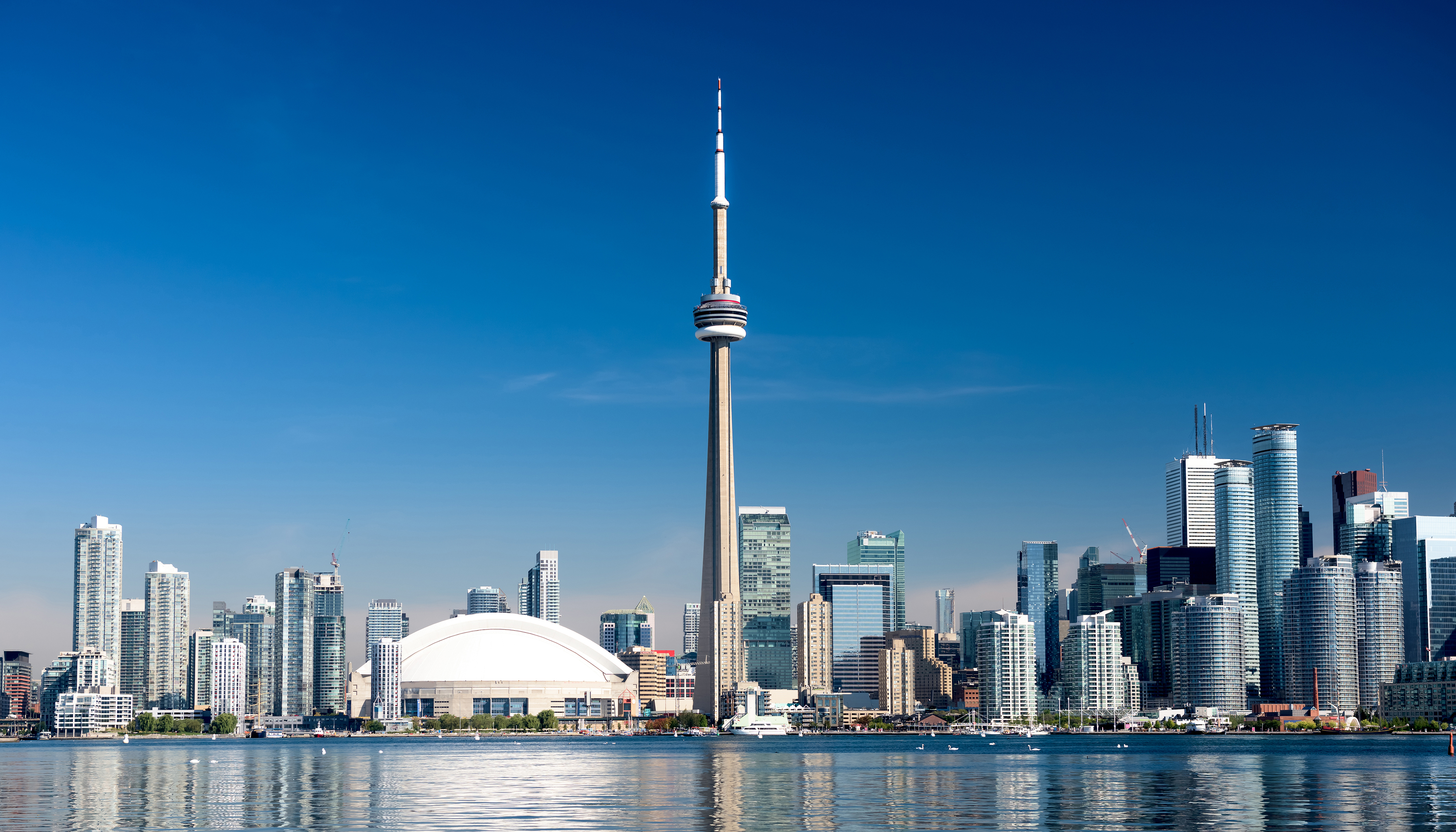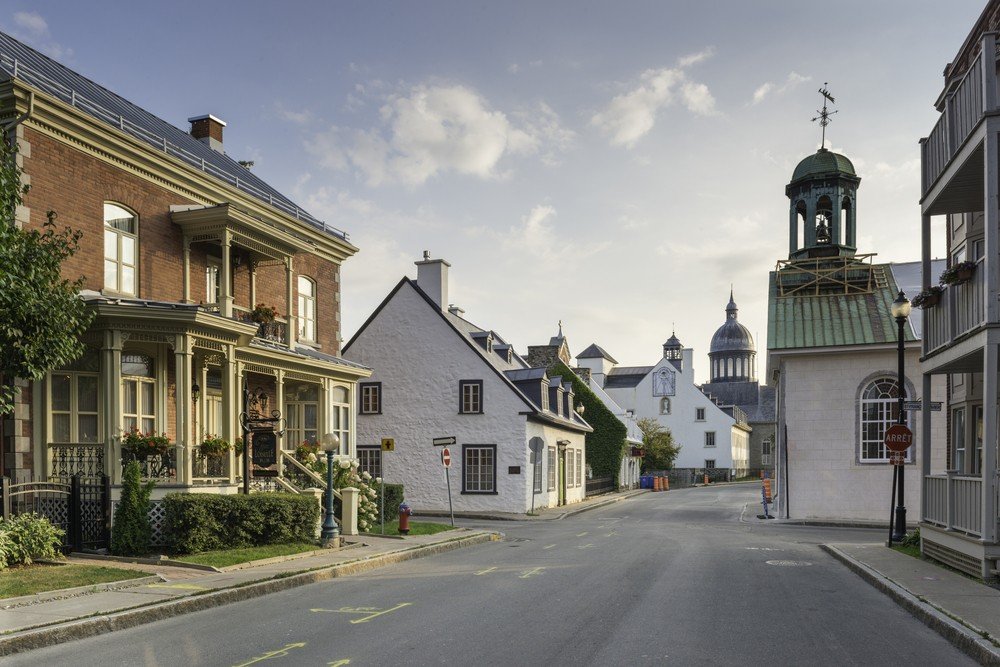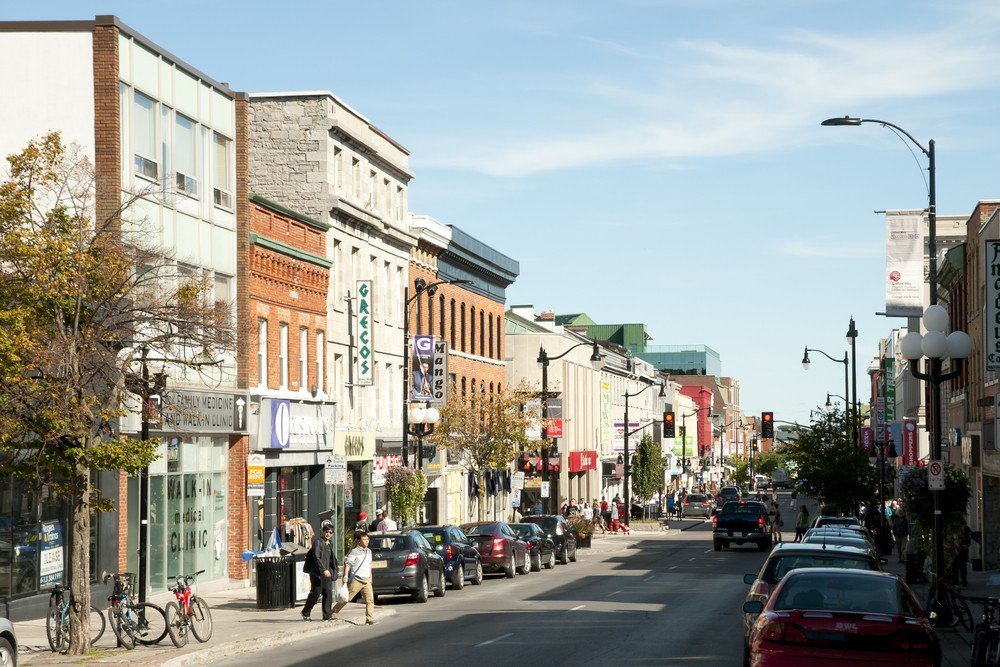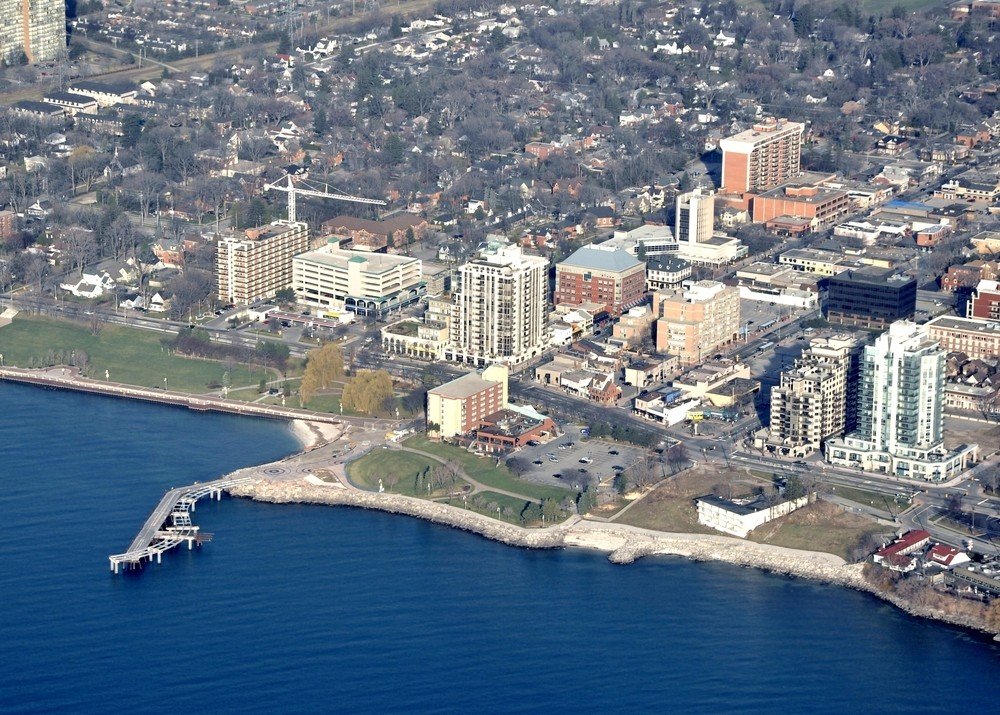-1689775573.jpg)
What are the best places to live in Canada?
i viewfinder / Shutterstock
Updated: July 19, 2023
Whether you’re considering moving to Canada for the first time or changing cities, where you choose to settle down will affect the trajectory your life will take. For this reason, it’s important to do your research and choose the best place in Canada for you and your family.
Fortunately, most places in Canada provide access to beautiful national parks, breathtaking views, and friendly locals. Beyond that, each city in Canada has its strengths that make it best suited for different stages of life. Some cities have very strong job markets, while others offer affordable housing and reasonably priced childcare.
Here’s our list of the best places to live in Canada and which stage of life they are best suited for.
Calgary

While Calgary may not immediately come to mind when you think of top cities for singles, in reality, this prairie community has much to offer. Unemployment is slightly higher in Calgary at 7.9%. Still, the median household income outranks the other two cities on this list, Vancouver and Toronto, at $99,715 (the other two coming in at $88,884 and $90,809, respectively), so there are opportunities to earn a higher wage. I like recommending Calgary for young singles because the cost of living in this city is quite reasonable, certainly lower than the other two mentioned below. In Calgary, you can expect to pay over $1,100 for a one-bedroom apartment. Finally, cultural events like the Calgary Stampede ensure you’ll never be bored of this western city.
Average Monthly Spend
- Housing: $1,387 (one bedroom apartment)
- Phone: $101
- Internet: $60
- Transport: $79 (youth pass) – $112 (individual fares)
- Groceries: $535
- Entertainment: $612(including outings, restaurants/bars, Netflix etc.)
- Fitness: $85
- Insurance: $15
Vancouver

If a vibrant, eclectic city is what you want, Vancouver is an excellent place to start your career. Vancouver is the third-largest metropolitan area in Canada, which means you’ll have easy access to excellent nightlife and diverse communities within the city. For anyone just starting their career, employment is readily available, reflected in the unemployment rate of just 5.4%. Finally, if you’re considering enrolling in post-secondary education, Vancouver is home to five universities. That includes the University of British Columbia and Simon Fraser University.
Although it boasts many job opportunities and an abundance of great experiences and sights, Vancouver is an expensive city with a low average income. So, I’d caution against moving here before you’ve plugged the numbers into your budget to make sure you can afford to save and make your debt payments after you’re done paying rent.
Average Monthly Spend
- Housing: $2,334 (one bedroom apartment)
- Phone: $75
- Internet: $80
- Transport: $41 (student pass) – $214 (individual fares)
- Groceries: $230
- Entertainment: $450(including outings, restaurants/bars, Netflix etc.)
- Fitness: $80
- Insurance: $25
Toronto

Another top contender for the best city for singles in Canada is Toronto, Ontario. Whether it’s proximity to cultural touchstones like the Toronto Raptors or the Toronto International Film Festival or the competitive unemployment rate of 6.4%, this city of 2.9 million has something to offer everyone. Yes, just like Vancouver, housing is expensive, with the average 1-bedroom costing $2,145, but the easy access to major employers, nightlife, and cultural diversity can offset this extra expense. If you’re considering moving to Toronto for school, you’ll have a choice between three major universities in the downtown core alone.
Average Monthly Spend
- Housing: $2,145 (one bedroom apartment)
- Phone: $95
- Internet: $80
- Transport: $128 (youth pass) – $156 (individual fares)
- Groceries: $480
- Entertainment: $575(including outings, restaurants/bars, Netflix etc.)
- Fitness: $64
- Insurance: $18
Best places to live for young couples
As a young couple, you may be preparing to take the same leap taken by many young couples before you: homeownership. If a home of your own is your goal, choosing to settle down in a city with reasonable home prices means you’ll become a homeowner sooner, and your monthly mortgage payment will be more affordable.
Trois-Rivieres

Located between Montreal and Quebec City, Trois-Rivieres is the most affordable city on this list, with an average home price of $374,000. Despite these low home prices, this city of 141,417 still maintains a median income of $59,054 and a reasonable unemployment rate of 3.4%. Trois-Rivieres is Canada’s oldest industrial city, and the century-old buildings on the main thoroughfare house shops, cafes, and bars. There are plenty of opportunities for cash-conscious couples to put down roots in this quiet part of Quebec.
Average Monthly Spend
- Housing: $488 (one bedroom apartment)
- Phone: $74
- Internet: $75
- Transport: $59 (youth pass) – $73 (individual fares)
- Groceries: $482
- Entertainment: $463(including outings, restaurants/bars, Netflix etc.)
- Fitness: $36
- Insurance: $30
Nelson

When you think of British Columbia, affordable housing isn’t usually the first thing that comes to mind, but the small town of Nelson proves that notion wrong. With an average home cost of $494,608, I chose Nelson for this list because it is one of the few remaining pockets of affordable housing in the province. Boasting a population of just 11,106, this beautifully preserved gold rush town is ideal for anyone with an appreciation for heritage, the arts, and a close-knit community. Nelson does have a slightly lower median income of $56,714, but the housing prices offset that shortfall.
Average Monthly Spend
- Housing: $1,333 (one bedroom apartment)
- Phone: $65
- Internet: $95
- Transport: $45 (youth pass) – $63 (individual fares)
- Groceries: $523
- Entertainment: $607(including outings, restaurants/bars, Netflix etc.)
- Fitness: $113.94
- Insurance: $26
Kingston

If Nelson or Trois-Rivieres is too isolated for you, centrally located Kingston might be a better choice. Kingston is located in Ontario and is a medium-sized city with a population of 132,485. The housing market saw an insane increase in the price of homes. The average price is now at an astounding $700,846. Located midway between Toronto and Ottawa, Kingston is home to Queen’s University, the Royal Military College of Canada, and St. Lawrence College. These institutions, along with manufacturing and research and development industries, mean there are many employment options. The average unemployment rate in Kingston is 6.2%, and the median income is $69,164.
Average Monthly Spend
- Housing: $1,599 (one bedroom apartment)
- Phone: $65
- Internet: $53
- Transport: $ 60 (student pass) – $80 (individual fares)
- Groceries: $480
- Entertainment: $575(including outings, restaurants/bars, Netflix etc.)
- Fitness: $40
- Insurance: $18
Best places to live for young families
If you’re thinking of moving your family to a new city or starting a family shortly after you move, the cost of housing and childcare should be high on your priority list. Here are three cities with affordable housing, reasonable childcare costs, and family-friendly communities.
Burlington

Located close to the Hamilton-Niagara region and Toronto, Burlington, Ontario, is an excellent option for young families looking for affordable housing within a reasonable commuting distance. Burlington is small, with a population of just 196,914. However, despite its distance from Toronto, you’ll pay a little more for housing, $1,270,247 on average compared to $1,233,598 in Toronto. An impressive 47% of families in the municipality have children, much higher than the national average, which means you’ll never have to worry about whether a neighbourhood is family-friendly or not.
Average Monthly Spend
- Housing: $1,270,247 (single family home)
- Phone: $65
- Internet: $53
- Transport: $75 (youth pass) – $100 (individual fares)
- Groceries: $994
- Entertainment: $575(including outings, restaurants/bars, Netflix etc.)
- Fitness: $35
- Insurance: $50
- Daycare: $1,600
St. John's

The furthest east option on our list and one that may not be on the radar of many families, St. John’s, Newfoundland, is an excellent candidate city for young families. I like this city by the sea for families because it ticks all boxes: daycare costs average an affordable $933.92 per month, home prices are well below the national average at just $306,419, and 29% of families have children. The median income in St. John’s is competitive at $82,540, but the unemployment rate is also at 7.1%, so don’t make your move unless you already have employment secured.
Average Monthly Spend
- Housing: $306,419 (single family home)
- Phone: $66
- Internet: $86
- Transport: $53 (youth pass) – $78 (individual fares)
- Groceries: $712
- Entertainment: $503(including outings, restaurants/bars, Netflix etc.)
- Fitness: $59
- Insurance: $17
- Daycare: $15 a day
Ottawa

Moving further east, we have Ottawa, which has long been a popular place to raise a family due to the many outdoor activities in the area, such as the Rideau Canal. This human-made canal snakes through the city and offers four seasons of outdoor marine enjoyment. Canadians also call Ottawa home due to the affordable average home prices. You can expect to pay an average of $731,306 for a home in Ottawa. This capital city has a population of around a million, and 28% of families have children. I ranked Ottawa as #3 on this list because the childcare costs in this city are much more affordable than other major urban centers, costing around $1,200 per month, which is still a hefty fee compared to the other two.
Average Monthly Spend
- Housing: $731,306 (single family home)
- Phone: $65
- Internet: $57
- Transport: $92 (youth pass) – $120 (individual fares)
- Groceries: $800
- Entertainment: $575(including outings, restaurants/bars, Netflix etc.)
- Fitness: $73
- Insurance: $18
- Daycare: $1,200
Need help getting newly settled?
Find a Home
Homeowners planning on moving or downsizing and looking in the Calgary, Toronto, or Ottawa areas should definitely consider Properly for all their listing, showing, selling, and buying home needs. Properly takes care of the process for you from end to end, including a free value assessment, preparing your home for listing and showing (cleaning, staging, and photographing), and expert in person or live video showings of your home.
At the same time that Properly is doing their work on your current home, you can begin using their services to find your new home and get pre-approved for a mortgage. Properly will offer you a backup purchase contract, which covers you if you can’t find a buyer in 90 days – Properly will buy it from you!
Get a Mortgage
If it’s your first time purchasing a home, applying for a mortgage can seem daunting. But, with the right broker on your side, it doesn’t have to be a struggle. Two great options are Homewise and Breezeful.
Homewise is a modern digital solution that offers approval, pre-approval, refinancing, and solutions for switching over your mortgage. It’s a free service that helps you find the best rates and features available on the market, all online and in 5 minutes.
Breezeful is an online mortgage broker that makes it quick and easy to get personalized quotes from over 30 different lenders. If you don’t have the time to meet a broker personally, Breezeful will help you find the best rate and then help you through the entire process, from negotiating to signing and then closing the deal, all entirely online.
Compared to a traditional bank, Homewise and Breezeful simplify the process by eliminating multiple credit checks and providing you with more flexibility to choose from multiple mortgage options.
Conclusion
It’s important to keep your financial priorities in mind when choosing a new city for your lifestyle. The top factors to consider are home prices, childcare availability and costs, proximity to employment opportunities, and amenities that are important to you. These are also important factors to consider if you’re looking for an investment property, though you might want to consider where you’re investing in real estate a little differently. Still, at the end of the day, make sure that you can afford your monthly expenses, and maybe get a helping hand from a company like Properly that can take the stress out of the process.
Whether you are planning a short-term stay in a new city or looking to put down roots for a long-term future in a new community, where you choose to live your life matters. You may also consider forgoing urban centers like many other Canadians in favour of smaller areas with more affordable housing. The cities listed above are excellent choices in their respective categories, but many more quaint, idyllic, vibrant, and diverse communities in Canada are just waiting to be discovered.
Recommended reads:
- Best places to invest in real estate in Canada
- What do CMHC’s new rules really mean for potential homebuyers?

Jordann Brown is a freelance personal finance writer whose areas of expertise include debt management, homeownership and budgeting. She is based in Halifax and has written for publications including The Globe and Mail, Toronto Star, and CBC.
Disclaimer
The content provided on Money.ca is information to help users become financially literate. It is neither tax nor legal advice, is not intended to be relied upon as a forecast, research or investment advice, and is not a recommendation, offer or solicitation to buy or sell any securities or to adopt any investment strategy. Tax, investment and all other decisions should be made, as appropriate, only with guidance from a qualified professional. We make no representation or warranty of any kind, either express or implied, with respect to the data provided, the timeliness thereof, the results to be obtained by the use thereof or any other matter. Advertisers are not responsible for the content of this site, including any editorials or reviews that may appear on this site. For complete and current information on any advertiser product, please visit their website.





